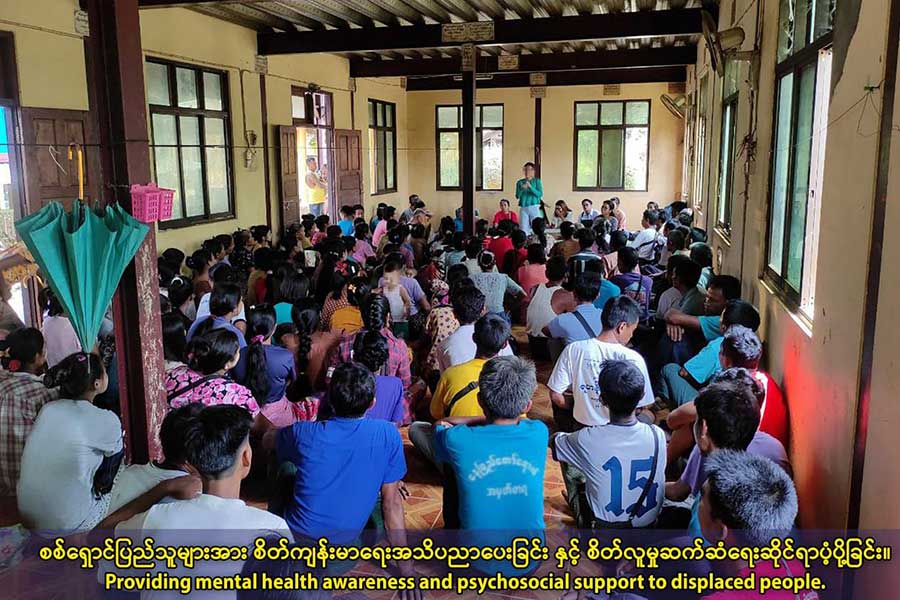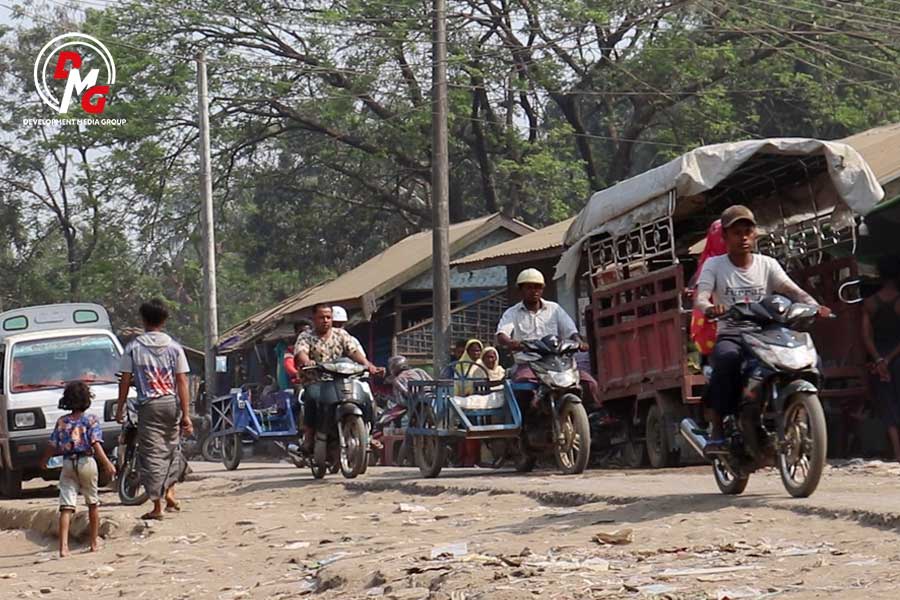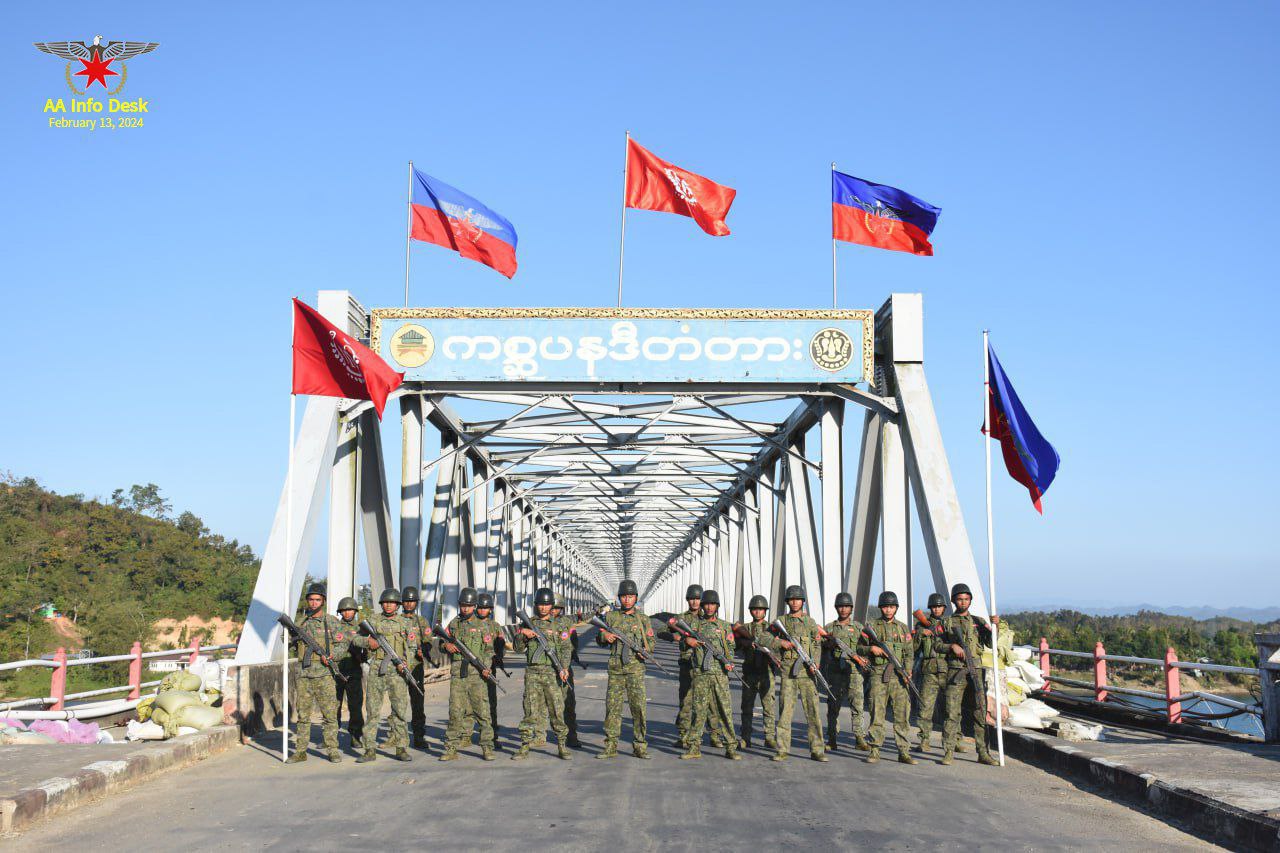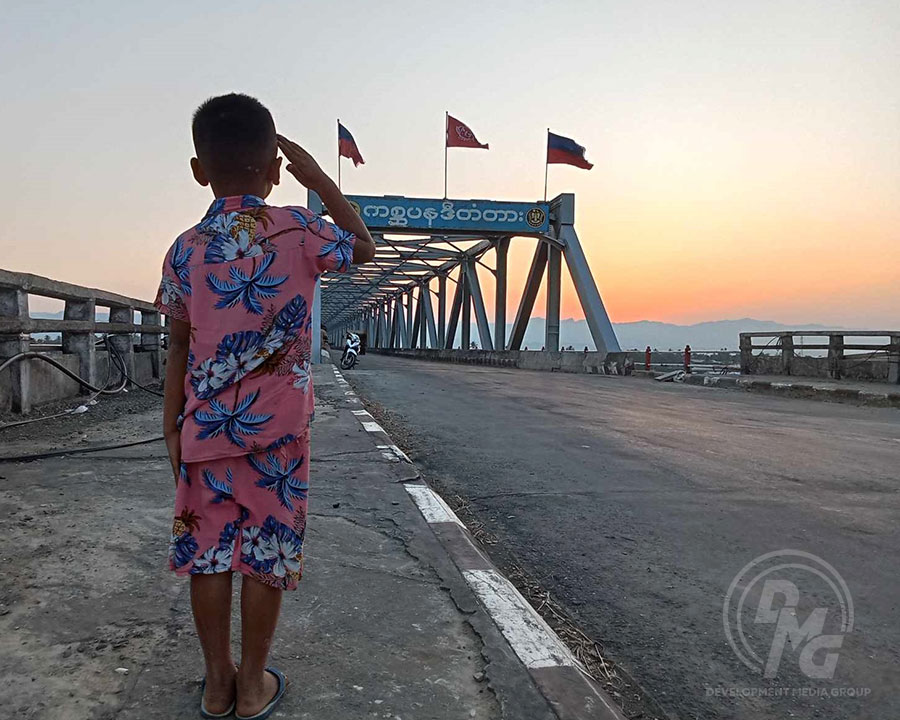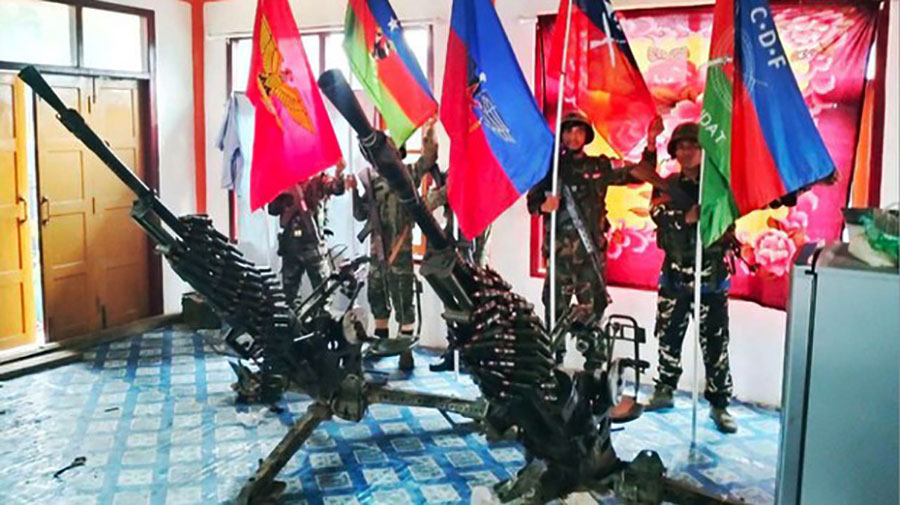One of Asia’s largest mangrove forests being cut down for firewood, Arakan State locals warn
Locals say the Wunbaik mangrove forest reserve (WRMF) in Ramree Township, Arakan State, Asia’s second-largest mangrove forest, is being cut down for firewood, adding that the mangroves need further protection efforts.
21 Sep 2021
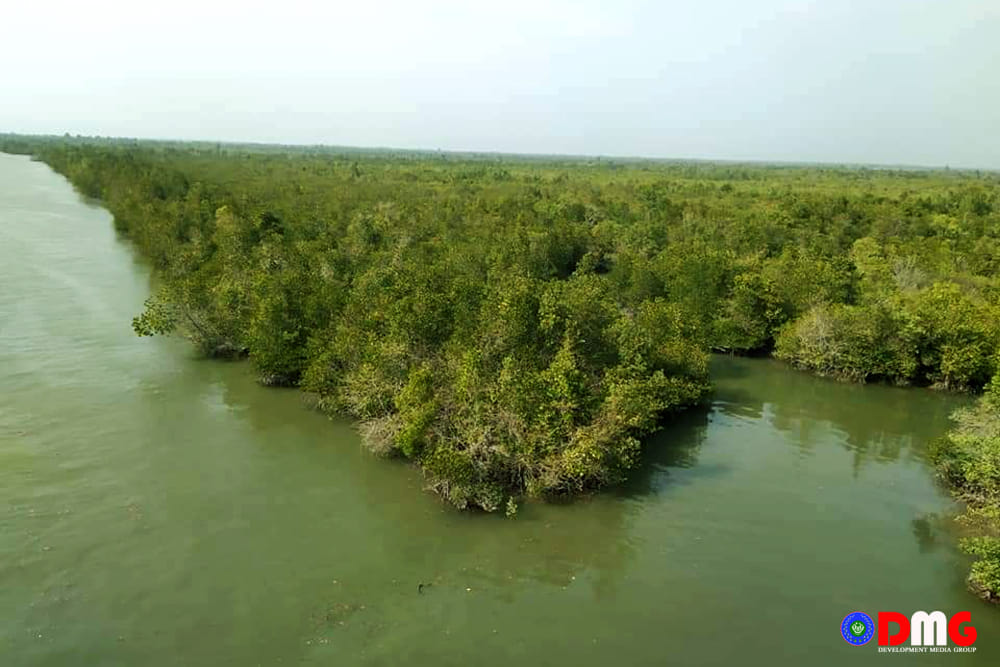
DMG Newsroom
21 September 2021, Ramree
Locals say the Wunbaik mangrove forest reserve (WRMF) in Ramree Township, Arakan State, Asia’s second-largest mangrove forest, is being cut down for firewood, adding that the mangroves need further protection efforts.
The Wunbaik mangrove forest, which covers more than 56,000 acres, was designated the WRMF in 1931.
Ko Tun Naing, a volunteer working in social activities in Ramree Township, said the mangroves were being destroyed by people from other townships who came to cut firewood in motorboats.
“There are people from other townships coming in small boats more so than in Ramree Township to cut down the mangrove forest. That is why we are preparing to conserve this mangrove forest on a rotating basis,” he said.
He continued that the WRMF needed the participation of locals from more than 10 villages closest to the mangrove forest to prevent further illegal logging.
Ko Chit Lwin, a resident of Sitbya village near the Wunbaik reserve, said he was ready to take part in mangrove conservation efforts.
“Deforestation has depleted marine resources. It is good for the people to monitor and maintain this mangrove forest. We are ready to join the conservation of the mangroves,” he told DMG.
The Forest Department compiles and updates information on mangrove forests throughout Myanmar once every five years. The most recent tabulations, from 2015, found that Arakan State had 395,726 acres of mangroves in total. There are 5,320 acres of mangrove forests in Maungdaw District, 7,463 acres in Sittwe District, 148,268 acres in MraukU District, 83,660 acres in Kyaukphyu District and 83,876 acres in Thandwe District.
The Biodiversity and Nature Conservation Association (RBANCA) will focus on conserving the mangroves currently growing near the Nanthar Island and Mayu estuaries, RBANCA Secretary Ko Yan Naung Soe told DMG.
There are about 300 acres of mangroves near Nanthar Island and the mouth of the Mayu River, according to RBANCA.
Mangrove plants are also cut down to develop areas for prawn or fish farming, or to make way for dams, destroying the habitats of aquatic wildlife, mangrove conservation activists say.




